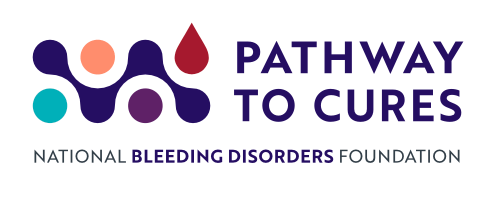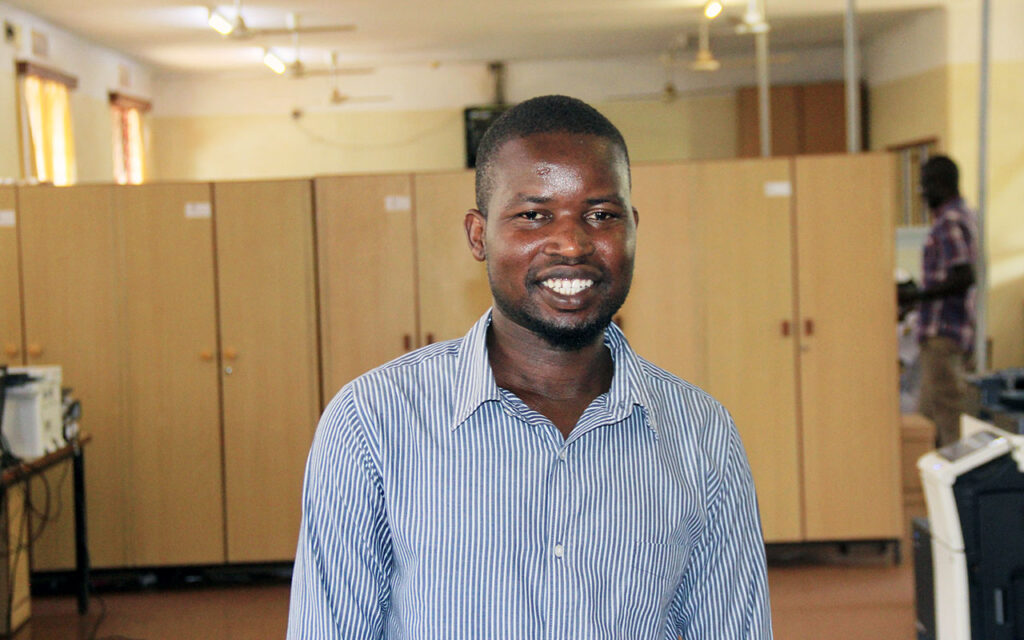Pathway to Cures: Seeking a world without inheritable blood and bleeding disorders
Imagine a world where inheritable bleeding disorders don’t exist. It’s an ambitious vision but one that Pathway to Cures (P2C), a venture philanthropy fund affiliated to the National Bleeding Disorders Foundation (NBDF), has in its sights.
A catalyst for vital research
Inheritable blood and bleeding disorders (IBBDs) – including haemophilia A and B, von Willebrand disease, sickle cell disease and anaemia, alongside many other clotting and rare blood disorders – affect more than 20 million people worldwide, many of whom are unable to access treatment.
P2C was established in November 2022 following the gift of USD 2.5 million to the NBDF for research. As a venture philanthropy fund, it serves as a catalyst for therapeutic innovation by investing in early-stage biotech companies whose work could make a real difference to people with IBBDs. This investment enables the knowledge, scientific, and community relationships that underpin the development of new platforms and technologies with the potential to positively impact patients’ lives.
“It’s not just the right time, it’s about time,” says Teri Willey, Managing Director of P2C. “It’s something that’s been on the drawing board for a while as a critical concept for addressing unmet needs, as a tool in the toolbox for the NBDF.
Evergreen funding for transformational impact
P2C’s venture philanthropy model means that all investment proceeds are re-invested back into the fund, enabling further cycles of investment and return. Known as ‘evergreen funding’, this ensures a perpetual resource for the NBDF and lasting impact for all fund donations.
Investments are informed by the NBDF’s Research Blueprint for Bleeding Disorders and assessed by a Scientific Advisory Group comprised of expert clinicians, scientists and community advocates. The core criterion is that companies must demonstrate significant potential for transformational impact for the IBBD community.
P2C is currently supporting two companies working on therapeutic innovations.
Anvesana, a spin-off from Rockefeller University, is working on RNA-sequence target identification using anti-sense oligonucleotides to develop therapies for people with Factor XI deficiency and women with haemophilia.
Meanwhile, Five Liters/Spark Biomedical, Inc., are developing a non-invasive medical device that uses vagus nerve stimulation to reduce bleeding. This is likely to benefit people with von Willebrand disease and women who experience heavy menstrual bleeding.
Bold ambition
Aspiring to a world without IBBDs is a bold ambition. Recent therapeutic advances have undoubtedly made life better for many people living with IBBDs worldwide – but P2C believes it is possible to achieve much more.
“The NBDF has really focused our listening on the lived experience experts and people who have the most intimate experience of what the gaps in care are – those that live with these diseases on a daily basis, and not only the patients but their loved ones, their caregivers,” says Leonard Valentino, P2C’s Chief Executive Officer and President of NBDF.
“By listening to this critically important part of the community, we believe that we understand where the true gaps in care are and can begin to focus research and innovation in those areas of true unmet need,” Len adds.
P2C is hoping to raise over USD 20 million over the next few years as it continues to invest in early stage companies whose work has significant potential to benefit the IBBD community.
If you would like to know more about Pathway to Cures, you can find further information at www.pathwaytocures.org.
You can also listen to Len Valentino and Teri Willey speaking with Luke Pembroke in our Haemcast episode Pathway to Cures; the venture philanthropy fund focused on transformative treatments for inheritable blood disorders.
Image: National Cancer Institute on Unsplash




